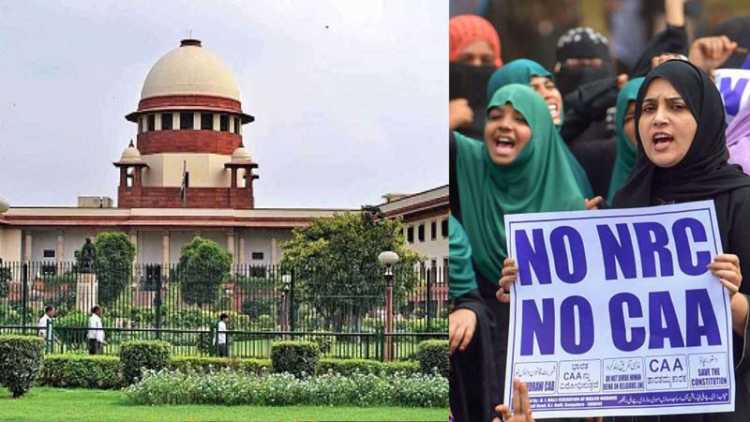The Supreme Court (SC) on Wednesday refused a stay on the implementation of the Citizenship (Amendment) Act (CAA), which came into force on 10 January. A bench, headed by Chief Justice S A Bobde, granted four weeks to the Centre to file a reply. The SC ruled that no high court would hear pleas on the CAA.
The court hinted at setting up a larger five-Judge Constitution Bench to hear the case and the matter will be listed after five weeks for interim orders.
As many as 143 petitions were filed, including those filed by the Indian Union Muslim League (IUML) and Congress leader Jairam Ramesh, challenging the constitutional validity of the Act. Some pleas had sought a stay on the implementation of the legislation.
The SC on 9 January had dismissed a plea that sought CAA be declared constitutional.
Demanding an interim stay, IUML in its petition had alleged that CAA was against the basic structure of the Indian Constitution as it intends to grant citizenship to a section of illegal immigrants by making exclusion on the basis of religion. It said that the Act was discriminatory against Muslims as it extends benefits only to persecuted Hindus, Sikhs, Buddhists, Jains, Parsis and Christians.
CAA seeks to grant citizenship to non-Muslim migrants belonging to Hindu, Sikh, Buddhist, Christian, Jain and Parsi communities who came to the country from Pakistan, Bangladesh and Afghanistan on or before December 31, 2014.
Calling CAA a “brazen attack” on core fundamental rights, Ramesh in his plea had said the Act treats “equals as unequal”.
“The impugned Act creates two classifications, viz, classification on basis of religion and the classification on the basis of geography and both the classifications are completely unreasonable and share no rational nexus to the object of the impugned Act i.e., to provide shelter, safety and citizenship to communities who in their native country are facing persecution on grounds of religion,” the plea added.
The Act has triggered nation-wide protests, with people from all walks of life voicing their opposition, especially in Delhi.
Following the protests in the national capital, the lieutenant governor of Delhi on 18 January passed an order authorising police to place the city under the National Security Act (NSA) for three months. The union home ministry on the other hand has downplayed the situation, saying that it was “a routine affair and the notification was renewed from time to time.”

